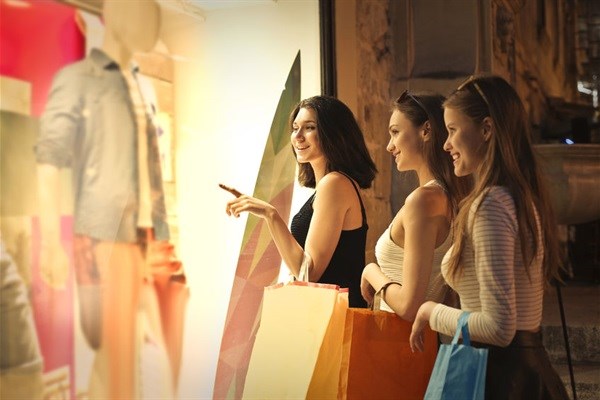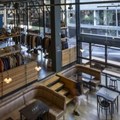Experience, it's more than entertainment

The future of retail, and indeed any business, is about selling solutions rather than products; creating an experience over and above an economic transaction.
This is particularly true of younger consumers.
Less stuff, more stories
Millennial and Generation Z consumers are voting with their wallets against big retail chains and mass-produced goods.
Young shoppers are spending more of their disposable income on experiences, such as travel and eating out, than they are on consumer goods. Moreover, when they do purchase consumer goods, these younger shoppers are choosing to save up for more durable, sustainable, socially responsible items. They are no longer so easily seduced by disposable fashion and other throw-away purchases.
In essence, young consumers are actively seeking out unique, personalised possessions. In the latest Flux Trends New Rules of Retail report, trend expert Dion Chang writes that Generation Z in particular want “less stuff, and more stories". They want to spend their money on things that have a narrative behind them. Furthermore, they expect their own purchase experience to be a part of that story.
The rise of retail theatre
When it comes to creating a story the resonates with younger shoppers enough to get them off their phones and into physical stores, shopkeepers have to offer something more than price and convenience. The one thing offline retailers can offer that e-commerce cannot (until VR really takes off) is an immersive, multi-sensory, tactile experience.
Retail theatre is about turning the shopping experience into a show, a show where the shopper is the star.
Shops become learning centres
In order to evolve in-store shopping from a transactional to a transformative experience, some stores are converting themselves into learning centres. This makes sense. This trend goes far beyond in-store product demonstrations.
Marie's Baby Circle, a division of E-Mart, Korea’s largest retailer, for example, opened an in-store free baby clinic that offers guidance, counselling and resources for expectant parents.
Likewise, in 2017, Selfriges, London, offered a series of free in-store “adulting” classes, which included cooking, bread baking and crafting lessons.
Town squares
Other retailers are re-defining their stores as community hubs or “town squares”, a place for people to socialise, linger and interact, rather than places to merely complete a transaction as fast as possible.
The Apple store model is a good example of this trend. Apple has long encouraged young people to spend time socialising and testing products in their stores at all hours of the day and night, even if they are not ready to make a purchase.
In South Africa, Absa’s Experience store in Rosebank is a bank that’s not a bank. The architecturally designed space offers free coffee, free wi-fi, free working spaces, free talks and events, and, on request, low-key, no-pressure-to-sign-up online banking assistance. Absa’s goal for the space is to build relationships with its future clients.
Make yourself at home
Going beyond the “you break it you bought it” mentality, some retailers are encouraging shoppers to interact, intimately, with products on the shop floor.
Ikea stores in China, for example, actually allow shoppers to sleep on beds in the store before committing to their purchases.
Other retailers are going even further to make their customers feel at home: Sonos Sound Equipment Company partnered with the Rough Trade record store in Brooklyn to re-create the ultimate home audio listening experience. Consumers could book a night in the store through AirBnB in a space fully equipped with their favourite vinyls, a top-end Sonos home sound system, and mid-century modern furnishings. The campaign is designed to get potential consumers to experience the full audio potential of the Sonos system in a home-like environment without the commitment.
More than a sale
At the end of the day, retailers that hope to capture the hearts, minds (and wallets) of tomorrow’s shoppers need to make sure that they offer their shoppers something more than a sale.


































